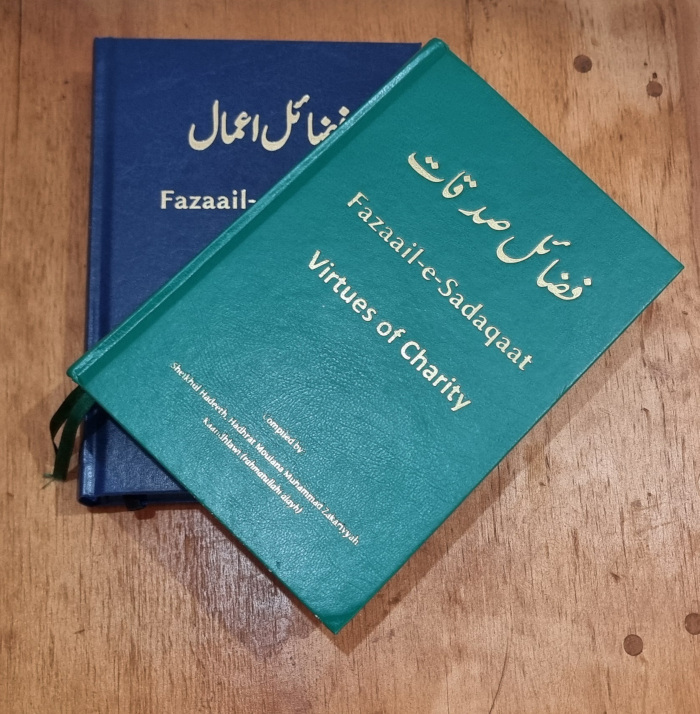
The Blessings of Serving One’s Parents
Hazrat Talhah (radhiyallahu ‘anhu) has said that once, a man came to Rasulullah (sallallahu ‘alaihi wasallam) and requested permission to go for Jihaad. Rasulullah (sallallahu ‘alaihi wasallam) asked if his mother was alive; he replied that she was.
Rasulullah (sallallahu ‘alaihi wasallam) then told him to continue to serve her well, as Jannah is under the mother’s feet. Rasulullah (sallallahu ‘alaihi wasallam) repeated this a second time, and even for the third time (emphasizing upon him to serve her well and fulfil her rights).
Hazrat Anas (radhiyallahu ‘anhu) has said that once, a man came to Rasulullah (sallallahu ‘alaihi wasallam) and stated his great desire to go for Jihaad, but added that he had no means for doing so. On being asked if any one of his parents was alive, he replied that his mother was alive.
Rasulullah (sallallahu ‘alaihi wasallam) then said, “Fear Allah Ta‘ala in her regard.” In other words, ensure that you fulfil your obligations towards her, up to the level of taqwa, over and above what you are supposed to do, and when you attain that, you will be considered as the one who has performed umrah and hajj, and also participated in jihaad. That is, you will receive the great reward of all these actions through serving her.
Hazrat Muhammad bin Munkadir (rahimahullah) has said, “My brother, Umar, used to spend the whole night in praying, while I used to spend the night in massaging my mother’s feet, and I never felt envious of his nightlong prayers, nor desired to exchange his reward with mine.”
Hazrat Aaishah (radhiyallahu ‘anha) has said that she asked Rasulullah (sallallahu ‘alaihi wasallam), “Of all the obligations a woman owes towards people, which person has the greatest right over her?” He replied, “Her husband.”
She then asked Rasulullah (sallallahu ‘alaihi wasallam), “Of all the obligations a man owes towards people, which person has the greatest right over him?” Rasulullah (sallallahu ‘alaihi wasallam) replied, “His mother.”
It is reported in one Hadith that Rasulullah (sallallahu ‘alaihi wasallam) said, “Remain chaste when dealing with other people’s women, then your own women will remain chaste in regard to other men; if you remain good to your own parents, your own children will be good to you.” (Durre Manthur)
Hazrat Taa’oos (rahimahullah) has said that a certain person had four sons. When he fell ill, one of his sons told the other three that if they were prepared to nurse the father in his sickness, he would take the whole of his father’s property; and if they wanted the whole property, he was prepared to nurse him alone without any claim on the property.
They agreed to the second option and left the nursing to him. He looked after the father most admirably until the father died. As agreed, he did not take anything from the property.
One night, he saw a person in a dream telling him that one hundred dinaars (gold coins) were buried at such-and-such place, which he could take. He asked the person if the money was blessed with barakah. The reply was, “No, it is not so.” The following morning, he related the dream to his wife who insisted that he should take the money, but he did not agree.
The following night, he again saw a dream wherein someone told him about ten dinaars lying buried at a certain place. When he again asked if they were blessed with barakah, the reply was in the negative. He related the dream to his wife the next morning, who insisted that he should go and take them, but he refused to do so.
On the third night, he saw a dream wherein someone told him that one dinaar was lying at such-and-such place, thus he should go and take it. He again asked if it was blessed with barakah. The reply was, “Yes, it is.” So he went and took the dinaar, purchased two fish with it, and brought them home.
When the two fish were cut open for cooking, an invaluable pearl was found in the stomach of each fish. Both these pearls were then sold to the king of the country in return for ninety mule-loads of gold.
(Fazaa’il-e-Sadaqaat [English] pg. 219-220, [Urdu] pg. 259-260)
 Ihyaaud Deen An Effort to Revive Deen in Totality
Ihyaaud Deen An Effort to Revive Deen in Totality



